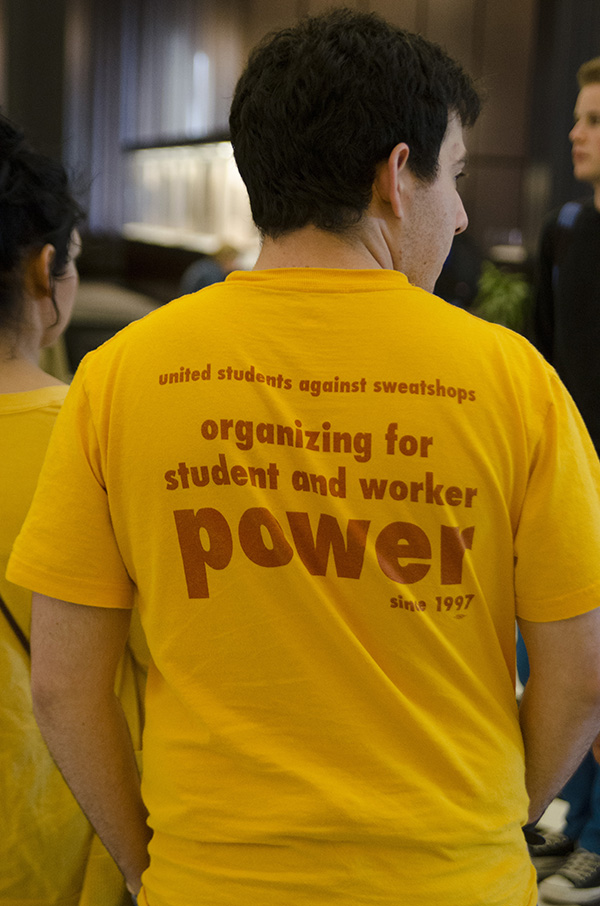[UPDATE] SLAM meets with Marc Wais in response to letter; Calls for changes in apparel production
September 27, 2013

UPDATE 10:39 p.m. Oct. 1, 2013: SLAM received a response to their letter from Senior Vice President for University Relations and Public Affairs Lynne Brown today. In the letter, Brown said the university administration has the same concerns as the group, and is presenting the matter to the University Senate at their first meeting of the year this Thursday.
—
Eight members of the NYU Student Labor Action Movement met with vice president for Global Student Affairs Marc Wais on Sept. 27 in his office to discuss their requests for the university to cut ties with garment companies who refuse to sign the Accord on Fire and Building Safety in Bangladesh.
The meeting followed their protest on Sept. 18 when they delivered a letter to the administration about their campaign.
After a short introduction, the group discussed the reasons why the conditions in Bangladesh factories are important to students and what changes they want NYU to make in their code of ethical conduct. The group stressed the idea that NYU students are directly related to this because they wear the clothing that is made in some of these factories. The group said 20 companies with 26 factories in Bangladesh are producing NYU apparel and none of them have signed the accord.
Gallatin senior and member of SLAM Caitlin Brimmer outlined the three major changes SLAM wants the university to implement.
They request that the licensees sign the Accord on Fire and Building Safety in Bangladesh, meet and discuss issues with unions that include at least one worker employed in factories producing collegiate apparel for that licensee and require their supplier faculties to respect the rights of workers to refuse to work under conditions they reasonably believe are unsafe, without suffering discrimination or loss of pay.
“The reason we are pushing the Accord versus the Alliance [for Bangladesh Worker Safety] is because it is a legally-binding contract,” Brimmer said.
Wais responded that the university is taking their initiative very seriously and has been consulting faculty and experts about possible next steps.
“The university is very much concerned about peoples’ health, safety and welfare,” Wais said. “We’re a university that can exercise some control to help that, and I think this university has a track record of doing that,” he said, referencing the previous university ban on Coca-Cola because of labor rights violations.
Wais said the issue is very complex and he couldn’t say what the outcome would be, but told the group that they would be receiving a letter next Tuesday at the latest, which would have more information about how the university plans to proceed. He added that the university community as a whole — not just the administration — should weigh in on the situation before a final decision is made.
“At the end of the day, I think there is going to be a university conversation about this,” Wais said.
Nicole Brown is a news editor. Email her at [email protected].














































































































































